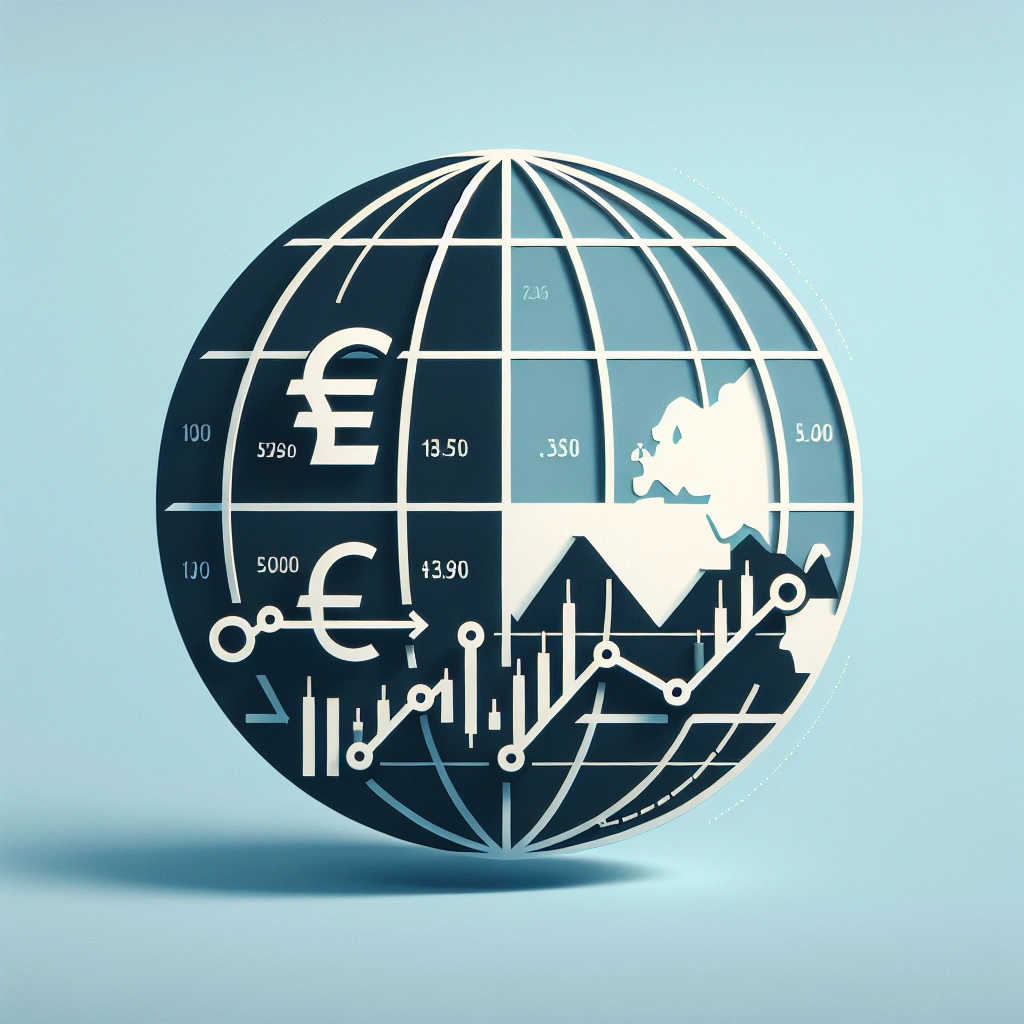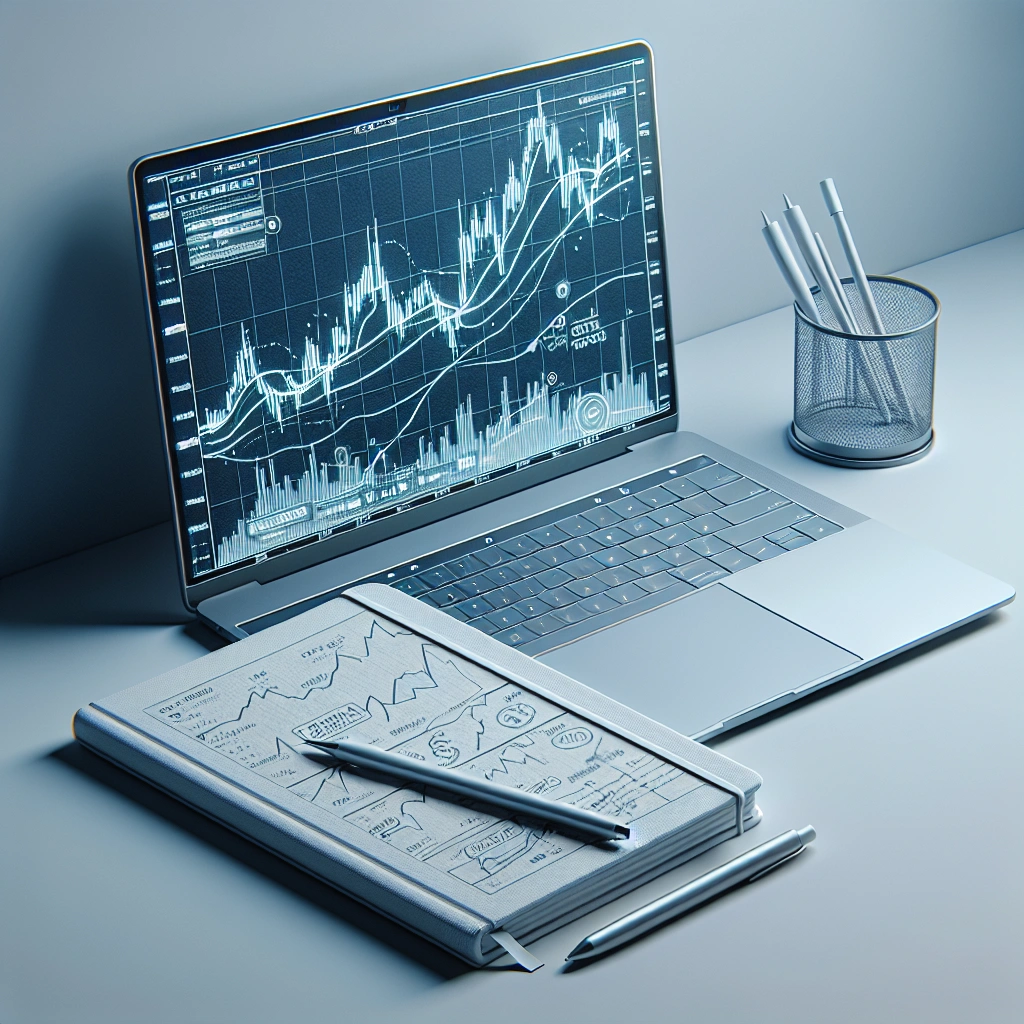Introduction
Forex trading, also known as foreign exchange trading, involves the buying and selling of currencies in the foreign exchange market. It is a decentralized global market where all the world’s currencies trade.
The forex market is the largest, most liquid market in the world, with daily trading volumes exceeding $6 trillion. As a beginner, understanding the basics of forex trading is crucial to navigate this complex and volatile market successfully.
Learning forex trading as a beginner is essential for gaining financial literacy and market understanding. It offers an opportunity for individuals to potentially generate income through currency fluctuations.
With the right knowledge and skills, beginners can make informed decisions, mitigate risks, and capitalize on profitable opportunities. Moreover, mastering forex trading can lead to enhanced financial independence and a diversified investment portfolio, offering a gateway to global financial markets and economic trends.

Understanding Forex Trading
- Definition of forex trading
Forex trading, also known as foreign exchange trading, involves the buying and selling of different currencies in the foreign exchange market. The primary objective is to profit from the fluctuations in exchange rates between currency pairs.
It’s important to note that forex trading does not involve physical exchange of currencies, but rather the trading of currency pairs in a decentralized global market.
- Explanation of how forex trading works
Forex trading operates 24 hours a day, five days a week across various financial centers worldwide. It is conducted through a network of banks, financial institutions, and individual traders, facilitated by electronic trading platforms.
When engaging in forex trading, investors can go long (buy) on a currency pair if they anticipate its value to increase, or go short (sell) if they expect it to decrease. The potential for profit or loss arises from the change in exchange rates between the currency pairs being traded.
-
Common terms used in forex trading (e.g. pip, spread, leverage)
-
Pip: Refers to the smallest price movement in the exchange rate of a currency pair. For most currency pairs, one pip is equivalent to 0.0001.
-
Spread: This represents the difference between the buy (ask) and sell (bid) prices of a currency pair, serving as an indication of the transaction cost.
-
Leverage: It allows traders to control a larger position size with a small amount of capital. However, it also increases the potential for both profits and losses.
For example, to illustrate the concept of leverage, if a trader decides to open a position worth $100,000 with a 1:100 leverage, they would only need to provide $1,000 in margin. This effectively amplifies the trading potential, but it’s essential to exercise caution due to the associated level of risk.

Getting Started with Forex Trading for Beginners
So, we’re diving right in to the exciting world of forex trading for beginners. The first step in this exhilarating journey is choosing a reputable forex broker. Finding a reliable broker is like finding a good hairstylist; you need someone who can execute your vision without making you want to hide under a hat. Look for a broker who is regulated, has a user-friendly platform, and offers comprehensive educational resources.
Next up, we’ve got opening a demo account to practice trading without risking real money. It’s like test-driving a car before making the big purchase. This is where you get to dip your toes into the forex pond, learn the ropes, make a few (simulated) trades, and see if this whole forex thing is your cup of tea. Practice makes perfect, and a demo account is your training ground.
Now, let’s talk about understanding different trading platforms available for beginners. It’s like exploring a new city; you want to know where all the best spots are. As a beginner, you’ll want a trading platform that offers simplicity, reliability, and a user-friendly interface. Look for platforms that provide access to essential trading tools, real-time market data, and educational resources tailored for beginners. Remember, the right platform can make your trading journey a whole lot smoother.
To sum it up, finding a reputable forex broker, opening a demo account, and understanding different trading platforms are crucial first steps in the journey of forex trading for beginners. It’s like building a sturdy foundation before constructing a skyscraper; you want to start on solid ground.
So, dive in, do your research, and get ready to conquer the forex world!
Basic Concepts in Forex Trading for Beginners
Explaining currency pairs and their significance
In forex trading for beginners, understanding currency pairs is crucial. A currency pair represents the price of one currency in relation to another. For instance, EUR/USD represents the exchange rate of the euro against the US dollar. Major currency pairs, such as EUR/USD, USD/JPY, and GBP/USD, are the most widely traded and offer high liquidity. On the other hand, minor currency pairs involve the combination of major currencies, excluding the US dollar. Furthermore, exotic pairs involve one major currency and one currency from an emerging economy, known for their lower liquidity and higher spreads.
Introduction to technical and fundamental analysis for beginners
In forex trading for beginners, technical and fundamental analysis are indispensable tools for making informed trading decisions. Technical analysis involves studying past market data, particularly price and volume, to predict future price movements. Traders use various indicators and chart patterns to identify trends and potential entry and exit points. Conversely, fundamental analysis focuses on economic, social, and political factors that impact currency values. Beginners should pay attention to indicators like GDP, employment rates, and interest rates to assess a country’s economic health, influencing a currency’s strength.
The role of risk management in forex trading for beginners
Risk management is paramount in forex trading for beginners. It entails strategies to minimize potential losses and safeguard capital. One of the fundamental risk management techniques is employing stop-loss orders. These orders automatically close a trade when the market reaches a specified price, preventing further losses. Additionally, beginners should adhere to proper position sizing, ensuring that each trade’s potential loss aligns with their overall risk tolerance. Moreover, diversification across various currency pairs and cautious usage of leverage are key elements in effective risk management.

Developing a Forex Trading Strategy
When delving into the realm of Forex trading, it is vital to comprehend the importance of having a trading plan. A trading plan acts as a roadmap for your trading activities, outlining the strategies, risk management techniques, and financial goals. Without a well-structured plan, traders are vulnerable to emotional decision-making and impulsive actions, eventually leading to detrimental outcomes.
In the pursuit of establishing a robust trading plan, beginner traders must prioritize a comprehensive understanding of risk management, trading timeframes, entry and exit strategies, and the selection of currency pairs to trade. It is imperative to underscore the significance of choosing a trading strategy that suits beginner traders. This process involves meticulous research to identify strategies that align with the risk tolerance, financial objectives, and expertise level of novice traders. Additionally, strategies focusing on technical and fundamental analysis can empower beginners to make informed trading decisions based on market trends, economic indicators, and price patterns.
Moreover, setting realistic goals and expectations forms the cornerstone of a sustainable and rewarding Forex trading journey for beginners. It is crucial to shatter the illusion of overnight success and embrace the idea of gradual progress. By establishing achievable short-term and long-term goals, beginner traders can maintain focus and motivation, leading to consistent growth and proficiency in Forex trading. Furthermore, managing expectations regarding potential profits and losses ensures a balanced approach to trading, mitigating the adverse impacts of impulsive or irrational decision-making.
In essence, the development of a Forex trading strategy for beginners hinges on meticulous planning, strategic alignment, and a realistic mindset, ultimately paving the way for a fruitful trading expedition.
Practical Tips for Forex Trading for Beginners
When it comes to leveraging effectively in forex trading, it’s vital to understand the risks involved. Start with a clear risk management strategy, ensuring that you never risk more than you can afford to lose. Utilize leverage with caution, considering smaller positions to reduce exposure. Emphasize risk assessment and understand the potential impact leverage may have, both positively and negatively, on your trades. Always remember, leverage can magnify gains, but it can also drastically increase losses.
Understanding the impact of economic events on the forex market is crucial for beginners. Economic indicators like Gross Domestic Product (GDP), employment rates, and inflation significantly influence currency values. Stay informed about scheduled economic releases and central bank meetings. For instance, if the Federal Reserve hints at raising interest rates, the U. S. dollar may strengthen. Being aware of these events helps in making informed trading decisions and managing risks effectively.
Keeping up with market news and analysis is essential for beginners to stay ahead. Subscribe to reputable financial news sources and follow market analysts to comprehend the sentiments that drive currency movements. Engaging with economic calendars and staying updated on geopolitical events is crucial. Utilize technical and fundamental analysis to form a comprehensive view of the market. By staying informed consistently, beginners can identify potential trading opportunities and make informed decisions.
| Practical Tips for Forex Trading |
|---|
| 1. How to Use Leverage Effectively |
| – Start with a clear risk management strategy |
| – Emphasize risk assessment and understand the potential impact |
| – Consider smaller positions to reduce exposure |
| 2. Understanding the Impact of Economic Events on the Forex Market |
| – Stay informed about scheduled economic releases and central bank meetings |
| – Comprehend the influence of economic indicators on currency values |
| 3. Keeping up with Market News and Analysis |
| – Subscribe to reputable financial news sources and follow market analysts |
| – Utilize technical and fundamental analysis to comprehend market movements |
Remember, success in forex trading for beginners relies on meticulous risk management, knowledge of economic events, and staying informed about market news and analysis.
Common Mistakes to Avoid in Forex Trading for Beginners
- Overtrading and its consequences
Overtrading is a common pitfall for forex trading beginners. It occurs when traders execute an excessive number of trades, often due to impatience or the desire to make quick profits. This can lead to emotional decision-making and significant financial losses as a result of impulsive and uninformed trading actions. To avoid the consequences of overtrading, beginner forex traders should focus on quality over quantity, exercising patience and discipline in their trading strategies.
- Ignoring risk management principles
The neglect of risk management principles is a critical error made by many novice in forex trading. Failure to implement proper risk management strategies, such as setting stop-loss and take-profit orders, can result in substantial financial setbacks. Forex trading beginners must prioritize risk management to safeguard their capital and minimize potential losses. By determining acceptable risk levels, utilizing appropriate position sizing, and employing stop-loss orders, traders can mitigate the adverse effects of market volatility and unforeseen fluctuations.
- Not using stop-loss orders
For currency trading newcomers, the absence of stop-loss orders poses a significant risk. Stop-loss orders serve as a protective mechanism, enabling traders to define predetermined exit points to limit potential losses. By neglecting to utilize stop-loss orders, forex trading beginners expose themselves to the danger of uncontrolled losses during adverse market conditions. Implementing stop-loss orders is essential for prudent risk management and safeguarding trading capital from undue depletion.
-
Summary of key points for beginners to remember Forex trading for beginners can seem overwhelming, but with the right approach, it can be a rewarding journey. It’s essential for beginners to grasp fundamental concepts such as currency pairs, leverage, and risk management. Understanding the market’s dynamics and staying updated with global economic events are crucial. Additionally, cultivating patience, discipline, and a long-term perspective are vital for success.
-
Encouragement to continue learning and practicing forex trading The journey of forex trading is an ongoing learning process. I encourage beginners to continue honing their skills through consistent practice and education. Embracing a growth mindset, learning from mistakes, and staying abreast of market trends are key to advancing in the forex trading world. It’s important to approach setbacks as learning opportunities and to persist with dedication and resilience.
-
Recommended resources for further learning in forex trading For those eager to elevate their understanding of forex trading, there are various reputable resources available. Engaging in online courses, accessing educational materials from established brokers, and participating in forex trading forums can provide valuable insights. Additionally, tapping into professional mentorship and leveraging demo accounts for practical experience are essential. It’s crucial to remain discerning and continuously seek knowledge from reliable sources to foster continuous growth in forex trading.
Frequently Asked Questions
Is $100 enough to start forex?
A few dollars will be enough to start trading in a cent account, but you will need at least $100 to become a professional trader and earn a …
How do I start learning forex trading?
Tips for forex trading beginners · 1. Know the markets · 2. Make a plan and stick to it · 3. Practice · 4. Forecast the ‘weather conditions’ of the market · 5.
Is forex trading good for beginners?
Forex trading, or FX trading, involves buying and selling different currencies with the aim of making a profit. At its core, forex trading is about capturing …